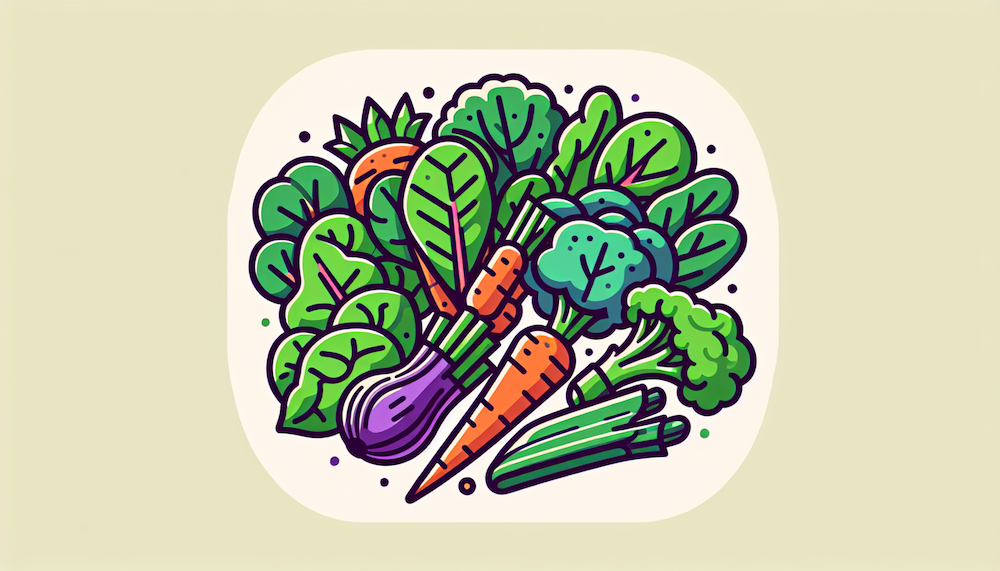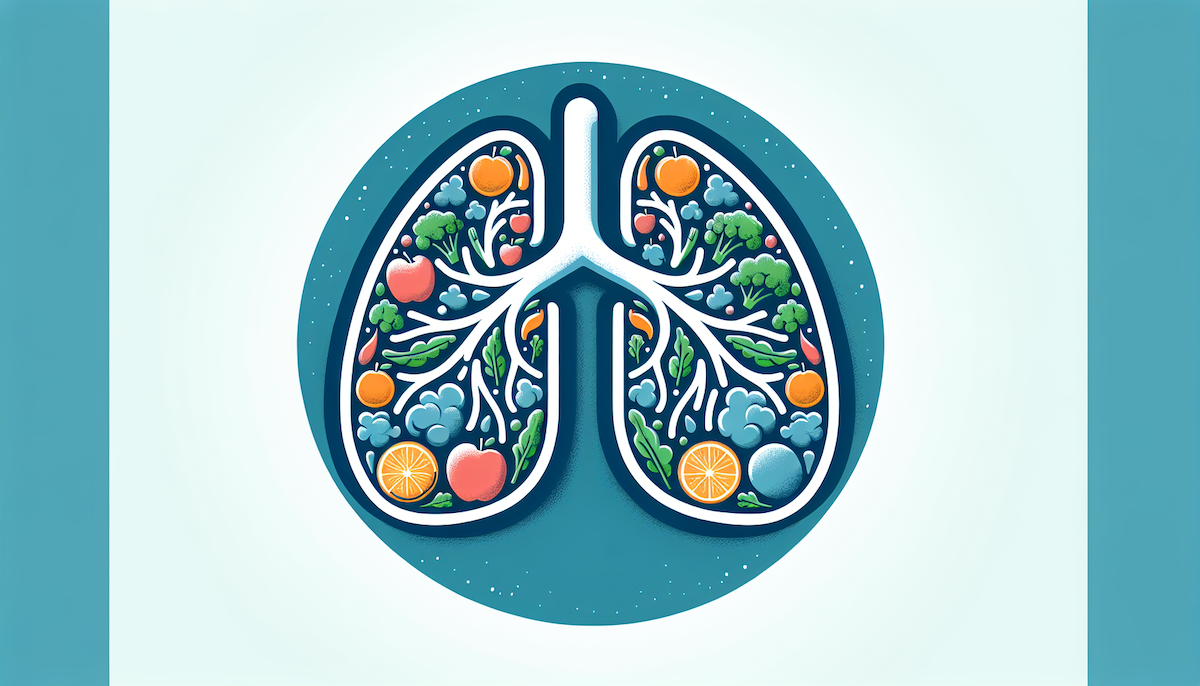Looking to boost your lung health and breathe easier? The foods you eat play a crucial role. While some foods can support healthy lungs and improve breathing, others can worsen lung function and lead to respiratory issues. By choosing the right fruits and vegetables, you can aid in repairing your lungs and enhancing respiratory function. Understanding which foods to include in your diet and which ones to avoid can make a significant difference in your lung health. Stay tuned as we delve into the best and worst foods for lung health, helping you make informed choices for optimal respiratory well-being.
Table of Contents
Key Takeaways
- Choose Wisely: Your diet plays a crucial role in maintaining healthy lungs and improving breathing.
- Fuel Your Lungs: Incorporate lung-friendly foods like berries, nuts, and fish rich in omega-3 fatty acids for optimal lung health.
- Go Green: Include green leafy vegetables such as spinach and kale to support and enhance your lung function.
- Colorful Support: Fruits like apples, oranges, and papayas are packed with antioxidants that aid in repairing lung damage.
- Avoid Harmful Choices: Stay away from foods high in saturated fats, processed sugars, and excessive salt to protect your lung health.
- During Infection: Opt for warm fluids, herbal teas, and avoid dairy products to ease breathing difficulties during lung infections.
- Breathe Easy: In addition to a healthy diet, practicing good lifestyle habits like regular exercise and avoiding smoking can significantly improve your breathing.
Importance of Diet for Lung Health
Nutrient-Rich Foods
Consuming a diet abundant in nutrients is crucial for maintaining improved lung health. These foods play a pivotal role in enhancing overall lung function and reducing the risk of various lung diseases.
Antioxidants, found in fruits like berries and vegetables like spinach, are essential for protecting lung tissue from damage caused by harmful free radicals. These nutrients can help prevent oxidative stress and inflammation in the lungs, promoting healthy lung function.
Anti-Inflammatory Diet
An anti-inflammatory diet, which includes foods like fatty fish, nuts, and olive oil, can significantly reduce inflammation in the lungs. By incorporating these foods into your daily meals, you can support improved lung density and lower the risk of developing chronic lung conditions.
- Pros:
- Supports overall lung health
- Reduces inflammation in the lungs
- Protects lung tissue from damage
- Cons:
- None reported
Balanced Diet for Lung Health
Maintaining a balanced diet that includes a variety of fruits, vegetables, whole grains, and lean proteins is essential for optimal lung function. These foods provide the necessary nutrients to support lung health and reduce the risk of lung cancer.

Best Foods for Healthy Lungs
Omega-3 Fatty Acids
Incorporating omega-3 fatty acids into your diet can significantly support respiratory health. Foods rich in omega-3s, such as salmon and other fatty fish, play a crucial role in maintaining healthy lung tissue.
Consuming these healthy fats helps reduce inflammation in the lungs, promoting good lung function. By including omega-3 sources in your meals, you can ensure your lungs are well-nourished and functioning optimally.
Whole Grains
Opting for whole grains is another excellent choice to enhance lung capacity and overall function. These grains are packed with essential nutrients that contribute to healthy body systems, including the lungs.
Whole grains provide a steady source of energy and promote better respiratory health. By incorporating whole grains like brown rice, quinoa, and oats into your diet, you can improve your lung health and support overall well-being.
Nuts and Seeds
Including nuts and seeds in your daily meals can benefit your lungs due to their powerful anti-inflammatory properties. These foods help reduce inflammation in the body, including the lungs, which is crucial for maintaining healthy lung function.
Nuts like almonds, walnuts, and seeds such as flaxseeds and chia seeds are rich in essential nutrients that support respiratory health. Adding a handful of nuts or seeds to your salads, smoothies, or snacks can be a simple yet effective way to boost lung health.
Fruits That Support Lung Function
Citrus Fruits
Citrus fruits like oranges and grapefruits are rich in vitamin C, which is essential for maintaining healthy lungs. Vitamin C acts as an antioxidant, protecting the lungs from damage caused by harmful molecules known as free radicals.
Berries
Blueberries and strawberries are excellent choices to support lung health due to their high antioxidant content. Antioxidants help reduce inflammation in the lungs and protect against oxidative stress, promoting better respiratory function.
Apples
Including apples in your diet can contribute to improved lung function over time. Apples contain flavonoids, which have been linked to a lower risk of chronic respiratory conditions such as asthma. The antioxidant properties of apples also play a role in reducing lung inflammation.
Incorporating these fruits into your daily meals can provide key antioxidants that combat oxidative damage and support overall lung health.
Vegetables for Improved Breathing
Cruciferous Vegetables
Cruciferous vegetables like cabbage and red cabbage are excellent choices for improving breathing. These vegetables contain compounds that support detoxification processes in the body. Consuming broccoli and kale can help cleanse the lungs and promote better respiratory health.
Garlic for Lung Health
Garlic is known for its anti-inflammatory properties, which can benefit lung health. Incorporating garlic into your meals can help reduce inflammation in the lungs, improving overall respiratory function. Its antimicrobial properties also support lung health by combating infections.
Sweet Potatoes and Beta-Carotene
Including sweet potatoes in your diet provides a good source of beta-carotene, a precursor to vitamin A. Beta-carotene is essential for maintaining healthy lung function and supporting the respiratory system. Consuming sweet potatoes regularly can help protect the lungs from damage and improve breathing.
Other Beneficial Vegetables
- Tomatoes: Rich in antioxidants like lycopene, tomatoes help reduce inflammation in the lungs and promote better respiratory function.
- Beans: High in fiber and protein, beans are a great addition to a lung-healthy diet. They provide essential nutrients that support lung health and improve breathing.
- Beets: Packed with vitamins and minerals, beets help boost oxygen uptake in the body, benefiting lung capacity and overall respiratory health.
- Peppers: Bell peppers contain carotene, which supports lung health. Their high vitamin C content also helps reduce inflammation in the lungs.
Healthy Cooking Tips
When preparing vegetables for improved breathing, opt for steaming or roasting methods instead of frying. This helps retain the nutrients and antioxidants present in these foods, maximizing their benefits for lung health.

Foods That Repair Lung Damage
Vitamins A and E
Consume foods rich in vitamins A and E to promote lung repair. These vitamins are essential for maintaining antioxidant defenses in the body, which help combat oxidative stress and inflammation. Foods like sweet potatoes, carrots, almonds, and spinach are excellent sources of these vitamins. Incorporating these into your diet can aid in repairing lung damage and improving overall respiratory health.
Turmeric Benefits
Integrate turmeric into your meals for its powerful anti-inflammatory effects. Curcumin, the active compound in turmeric, has been shown to reduce inflammation in the lungs and promote healing. Adding turmeric to dishes like curries, soups, or smoothies can provide a natural boost to your lung health. Its anti-inflammatory properties can help alleviate symptoms of respiratory conditions and support lung function.
Bone Broth Nutrients
Utilize bone broth for its nutrients that support lung healing. Bone broth is rich in collagen, amino acids, and minerals that are beneficial for repairing damaged tissues in the lungs. These nutrients help strengthen the respiratory system and improve overall lung function. Including bone broth in your diet regularly can contribute to the repair and maintenance of healthy lungs.
Worst Foods for Lung Health
Processed Meats
Processed meats like sausages, bacon, and deli meats should be avoided as they contain high levels of preservatives and additives that can trigger inflammation in the body. These additives have been linked to increased risks of cancer and other chronic diseases.
Dairy Products
Dairy products, such as milk, cheese, and yogurt, are known to stimulate mucus production in the respiratory system. Excessive consumption of dairy can lead to congestion and worsen breathing difficulties. It is advisable to limit the intake of dairy products for optimal lung health.
Fried Foods
Fried foods, including french fries, fried chicken, and doughnuts, are high in unhealthy fats that can harm lung function. The process of deep-frying these foods generates harmful compounds that may contribute to respiratory issues. Avoiding fried foods can help maintain healthy lungs and improve overall breathing.
Foods to Avoid During Lung Infection
Sugary Foods
Eliminate sugary foods from your diet as they can weaken the immune system, making it harder for your body to fight off infections. High sugar intake can lead to inflammation, which is detrimental during lung infections.
Consuming excessive amounts of sugar can contribute to inflammatory lung diseases and exacerbate symptoms of lung inflammation. It’s crucial to limit your intake of sugary treats like candies, sodas, and desserts.
Alcohol Consumption
Refrain from consuming alcohol during a lung infection as it can worsen respiratory issues. Alcohol can irritate the lungs and exacerbate symptoms such as coughing and shortness of breath.
Alcohol consumption can also weaken the immune system, making it harder for your body to fight off infections. To promote lung health and recovery, it’s essential to avoid alcohol until you have fully recovered.
Caffeine Intake
Avoid caffeine during a lung infection as it may lead to dehydration and worsen lung symptoms. Caffeine is a diuretic that can increase urination, leading to dehydration, which can further strain the lungs.
Excessive caffeine consumption can also aggravate conditions such as pneumonitis and inflammation, hindering the healing process. Opt for hydrating beverages like water or herbal teas instead.
Lifestyle Tips for Better Breathing
Exercise
Engage in regular exercise to strengthen your respiratory muscles and improve lung function. Activities like brisk walking, cycling, or swimming can help increase lung capacity and efficiency.
According to the ALS maintaining an active lifestyle not only benefits your overall health but also plays a crucial role in enhancing the performance of your airways. By exercising regularly, you can reduce the risk of developing respiratory conditions such as bronchitis, asthma, and COPD.
Clean Environment
Create a clean environment in your living space to minimize exposure to harmful pollutants that can negatively impact your respiratory health. Dust, pollen, pet dander, and mold are common allergens that can trigger congestion and shortness of breath.
By keeping your surroundings free of dust and allergens, you can prevent irritation to your airways and reduce the likelihood of respiratory issues. Regular cleaning and proper ventilation are essential steps in maintaining a healthy indoor environment.
Hydration
Stay well-hydrated throughout the day to support optimal lung function and keep your airways clear. Water helps thin mucus secretions in the lungs, making it easier to expel them and reducing the risk of infections.
Proper hydration is key to ensuring that your respiratory system functions efficiently. Drinking an adequate amount of water daily can help prevent dehydration-induced decline in lung function and promote overall respiratory health.
Final Remarks
Incorporating lung-friendly foods into your diet can significantly impact your respiratory health. By choosing nutrient-rich fruits and vegetables while avoiding harmful options, you are actively supporting your lungs’ well-being. Remember, what you eat plays a crucial role in maintaining healthy lung function and preventing potential issues. Make conscious choices to fuel your body with foods that promote clear breathing and overall vitality.
Take charge of your lung health today by making informed dietary decisions. Your lungs work tirelessly to keep you breathing, so reciprocate by nourishing them with the best foods possible. Small changes in your eating habits can lead to significant improvements in your respiratory well-being. Stay mindful of what you consume, prioritize lung-friendly options, and enjoy the benefits of better breathing and enhanced vitality.
What is the importance of diet for lung health?
Eating a balanced diet rich in nutrients like vitamins C and E, antioxidants, and omega-3 fatty acids can support lung health by reducing inflammation, strengthening immunity, and promoting overall respiratory function.
Which are the best foods for healthy lungs?
Incorporate foods like salmon, walnuts, berries, broccoli, and turmeric into your diet. These foods are rich in nutrients that can help reduce inflammation, improve lung function, and support overall respiratory health.
How do fruits support lung function?
Fruits such as apples, oranges, grapes, and berries are high in antioxidants and vitamins that can help reduce oxidative stress in the lungs, strengthen immunity, and promote better respiratory function.
What vegetables are beneficial for improved breathing?
Include vegetables like spinach, kale, carrots, and bell peppers in your diet. These vegetables are packed with essential nutrients like vitamin A, C, and K that can support lung health and improve breathing.
Which foods are known to repair lung damage?
Foods like garlic, turmeric, ginger, and green tea contain anti-inflammatory properties and antioxidants that can aid in repairing lung damage, reducing inflammation, and promoting overall lung health.

